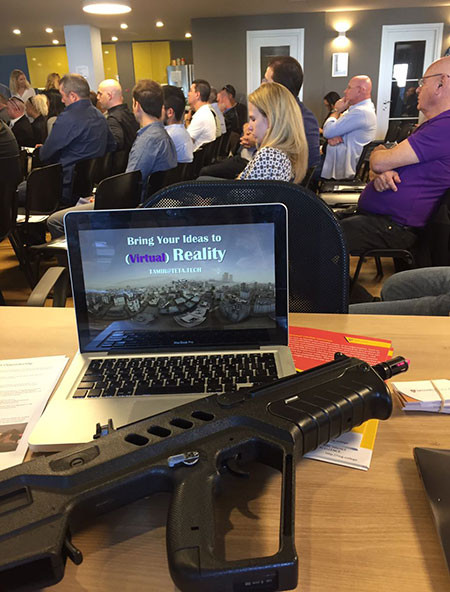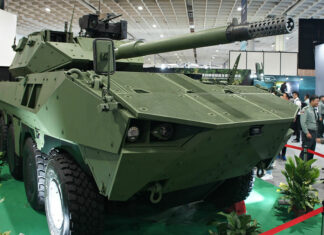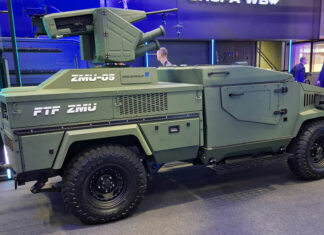Eight startup companies that ‘graduated’ today from the first class of Israel’s Defense and HLS Accelerator in Lighthouse Ra’anana mark an important milestone for Israel’s defense innovation – a privately funded initiative sponsored and supported exclusively by the defense business community.
“What makes our accelerator unique is bringing together the startups with potential customers. This networking help shape the inventor’s ideas into practical solutions for early adoption by the users,” Tal Catran, Program Director of the IHLS Accelerator told Defense-Update. “This is an essential stage to attract investment, mature products and rapid access to defense and security markets. This graduation, is also a ‘demo day’ that attracted users from the defense community is a proof of this strategy.” This networking helped startup to develop new solutions very quickly.” In only four months, most of the start up ventures that participated have met significant milestones such as prototype development, proof of concept, product and demo designs, capital fund raising and more.
Among these were Listenapp, a developer of a smartphone app that alerts users when their calls are recorded, or subjected to eavesdropping or information on their phone is compromised. Few months after launching its development Listenapp is planning to launch its app online soon.
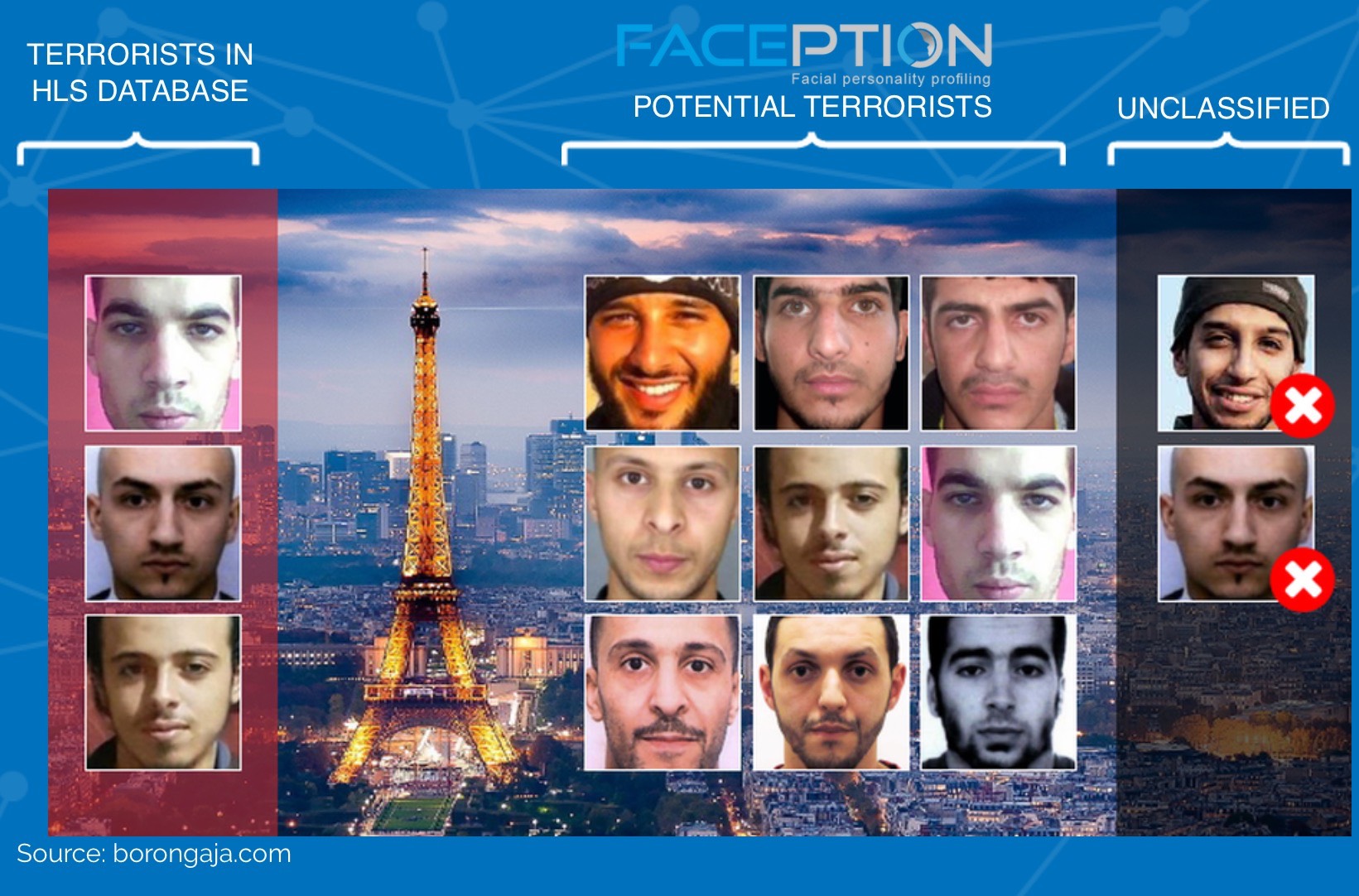
Another venture making significant progress is Faception. The company implements a proprietary face recognition process to enable security agencies and businesses to detect personality groups based on facial images and patterns. Unlike face recognition which categorizes individual based on lists of known suspects, Faception enables organizations with access to large image databases, or as well as robots, to categorize unanimous people into groups with common attributes. Terrorists, white collar offenders and pedophiles were identified among a test group of unanimous people. Faception demonstrated identification accuracy exceeding 80 percent. On a test made by the company after the Paris terror attack in October 2015 the algorithms classified nine of the suspects eventually aprehended by the police as ‘potential terrorists’ based on their facial attributes, although the system had no prior knowledge of their relations to the three suspects that had prior record. In addition to security inspection the technology can also be used for screening, by pointing to individuals who are potential offenders, with a high degree of certainty.
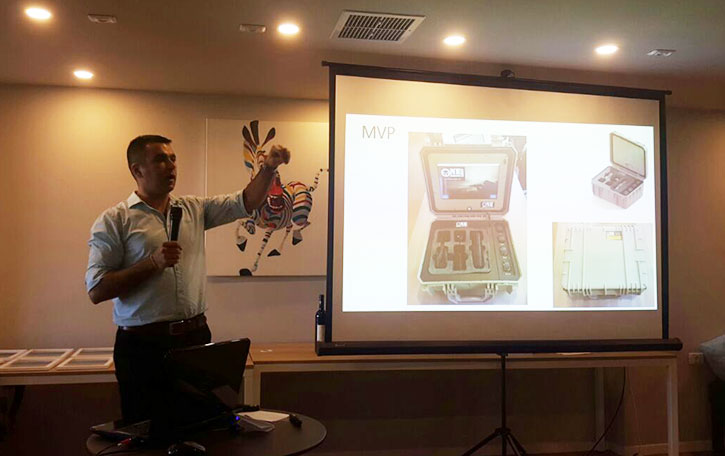
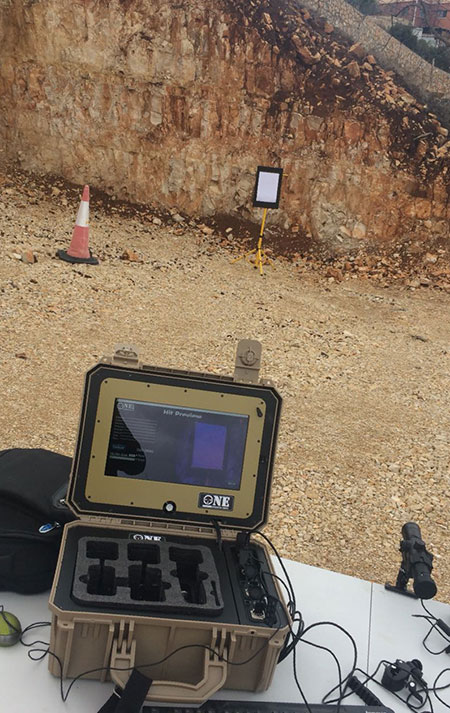
Tackling the issue of firepower accuracy, OneZeroingShot has developed an effective method to improve the accuracy of firearms. Unlike other zeroing procedures that require lengthy and complex procedures, OneZeroingShot provides a quick, and cost effective solution that offers shooters to zero-in any rifle with any sight, at any distance within one minute and using one shot. In recent months the new method was validated and a prototype of a field deployable produced.
A different innovation presented here was the generic 3D kinematic simulation engine developed by 3DOR. The engine runs complex motion interaction scenarios analyzing object behaviors for operational research used by defense manufacturers and the military in operational research and evaluation, algorithm testing and real-time solutions. Unlike other startup companies 3DOR is an established business, supporting customers in the MOD, military and defense community, the Accelerator enables companies like 3DOR to broaden their reach domestically and abroad.
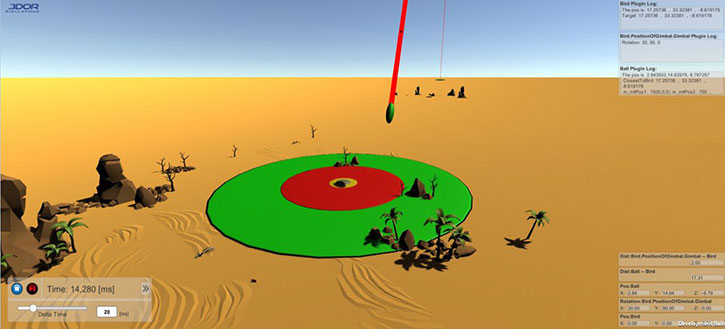
Tackling a different problem in product development cycle, TETATE is merging 3D modelling, animation and Virtual Reality (VR), to bring new concepts and innovations in their early stage to (virtual) reality. With a small group of experienced producers, programmers and technical experts TETATE takes a concept, design or product and embed it into a VR scenario, enabling designers, potential users or customers to experience the system in its early stage. Integrating props such as weapons, system controls or other assets (such as a rifle, or fire extinguisher), the hyper-realistic scenarios can also be used for training.
Addressing the increasing use of drones in the combat zone, ‘D-NEST’ developed by Safeland offers solution that enables multirotor drones to operate continuously and autonomously over a wide area. Developed to address civilian uses of multirotor drones in future delivery and commerce, D-NEST is equipped with localization, communications, and electrical charging – all necessary to sustain continuous drone activity in rural or urban areas. The system is equally suitable for operation in an urban war zone is, where the forces require constant UAV support that often expose drone operators in open area. During their residence in the accelerator Safeland completed prototype development and demonstration, of a man portable D-NEST system that supports dismounted forces.
Introducing Quality Learning (Q-Learning) solutions to defense and HLS and the National Security Group (NSG) employs on the job training solutions that have become part of today’s enterprise culture, for security and defense training. NSG provides courses for armed forces, law enforcement, security agency and private security firms. Using interactive, game based scenarios, NSG combines vocabulary, reading and tests to assure learning.
Lightline has evolved as a ‘seed’ from the DSIT group, to pursue the development of linear sensor solutions based on fiber optics. The new sensor employs DSIT’s extensive know how in acoustic processing to enable users to detect anomalies along the sensor, over long distances (up to 100 km, and tens of meters away from the sensor). Lightline offers its linear fiber optic sensor solutions for perimeter defense, oil, gas, water and communications line security, highway and railway monitoring as well as surveillance of large urban areas, enhancing ‘smart city’ and ‘safe city’ systems. Lightline motivation to join the Accelerator was the defense focused nurturing and support and visibility they gained to companies and users in the defense community in Israel and abroad.
The Israeli defense & HLS accelerators is one of few innovation centers that have evolve in Israel in recent years. What is unique about this one is it is actually operating within another accelerator – the Lighthouse, established few months ago in Raanana. As Lighthouse keeps its own momentum, the defense accelerator is now launching the second ‘class’, with more innovations on the way. These innovations are attracting the attention of angel investors, venture capital (VC) funds, defense companies.
In fact, the organizers are already raising a substantial investment fund to finance some of the startup companies with seed and A round funding. The accelerator also established leads overseas – a recent Memorandum of Agreement signed with GT Korea formalized links to investors, innovators and major corporations on South Korea. Similar agreements are also pursued in other Asian and European markets.
Fair Disclosure: The writer is a founder and an executive at TETATE.

